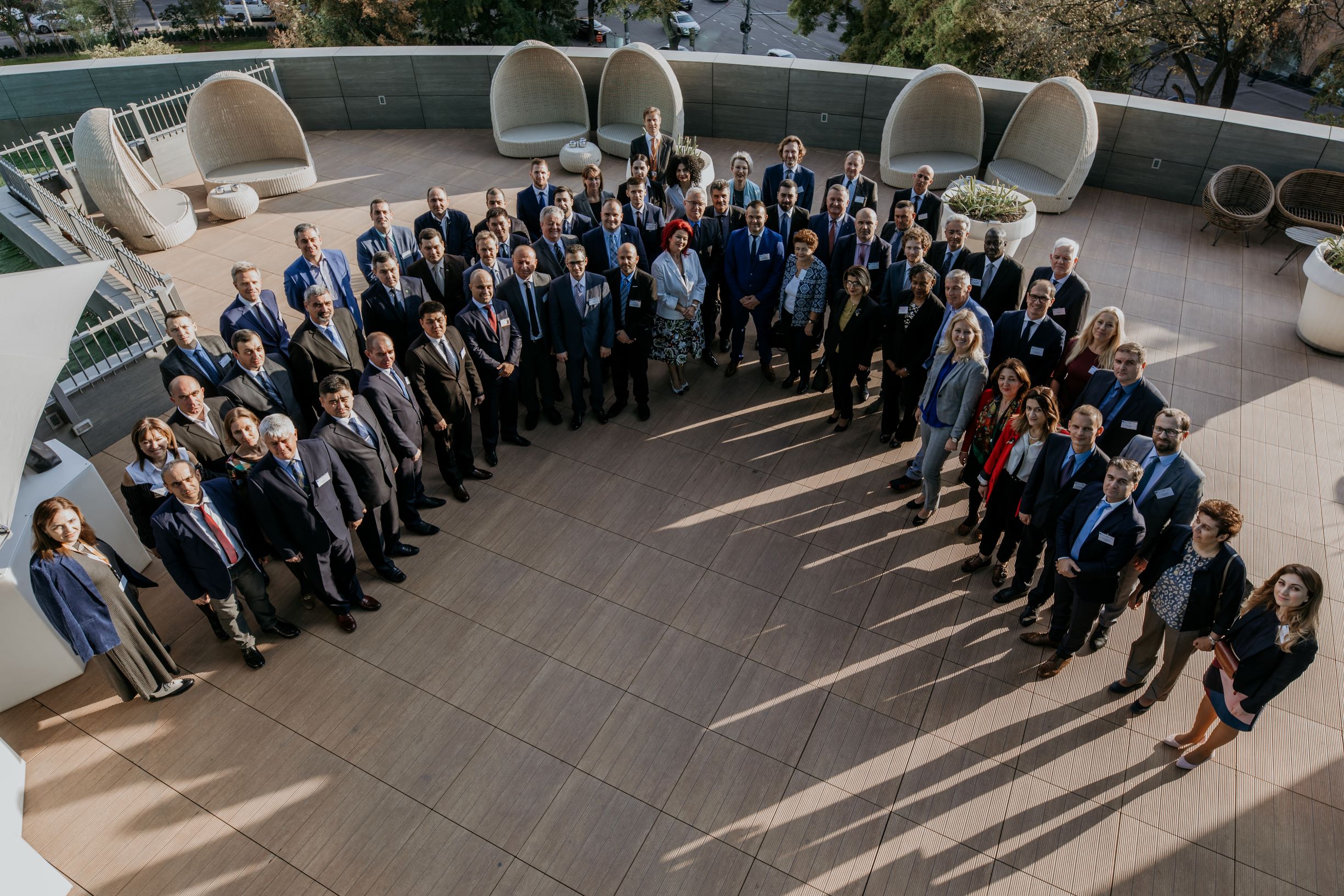Well-functioning and efficient borders form the foundation for regional mobility and development. Whether we consider the transit of cargo trains or containers full of goods, business people flying to meet their associates, tourism communities that cross national borders as part of their leisure patterns or even people fleeing persecution, the success or failure of these activities is dependent on well-governed borders. With the number of border crossings accelerating year by year, the need for national authorities to adopt a more progressive concept of comprehensive border governance becomes imperative.
To explore how a step-change from border management to its comprehensive governance may acknowledge the wide variety of tasks and actors present at the borders, as well as the far-reaching responsibilities that border professionals assume over the development, security and stability of their countries, the International Centre for Migration Policy Development (ICMPD) organised the second International Conference on Comprehensive Border Governance. The event gathered State representatives, policymakers, academic experts, public institutions and agencies, as well as private sector representatives working in the border governance sphere.
In his keynote speech, Mr. Martijn Pluim, ICMPD Director of Migration Dialogues and Cooperation, described the future way forward: “Solutions should strive to bring relevant stakeholders together, and should connect relevant actors and proactively contribute to overall human progress. A concept of comprehensive border governance needs to be embraced by national and international partners, as it will serve the interests of governments, citizens, migrants, travellers and businesses alike.”
The Prague Process’s interventions in this area focus on policy and planning, international cooperation and, above all, on training. Effective training should be innovative, using both conventional and non-conventional tools. The goal is to empower and complement human actors in border agencies. Regardless of how advanced border control and surveillance technology may become, the focus shall always be on people.
The concept of ‘Comprehensive Border Governance’ encompasses all present and future cross-border tasks and responsibilities. Based on strong strategic planning and cooperation, it positions the key stakeholders and practitioners as the main owners and leaders of the process. Furthermore, it prioritises processes introduced by policymakers over technologies used, since technologies tend to cement the process – no matter whether it is good or bad. It should not be forgotten that effective border governance plays a key role in national efforts to prevent the smuggling of counterfeit and prohibited goods, combatting organised crime and corruption, and guaranteeing the safety of travellers, migrants and refugees.
The conference provided a platform for the Prague Process States to discuss the challenges ahead, lessons learnt from the past and some practical solutions for the future, facilitated by technological progress. Participants presented their daily practices and key achievements, and reflected upon workable solutions to facilitate cooperation and coordination between the border and migration agencies. The conference also served the introduction of new products and technologies, such as mobile device readers, which can identify the journey, activities and contacts of suspicious travellers while properly safeguarding personal data. Ultimately, coordination efforts in the border governance area should extend to the relevant stakeholders at regional and global levels.

